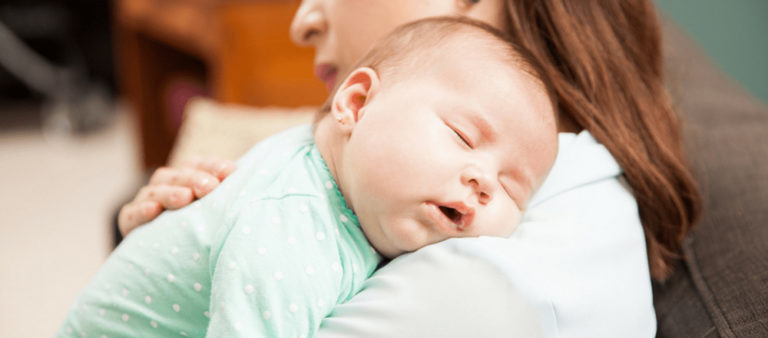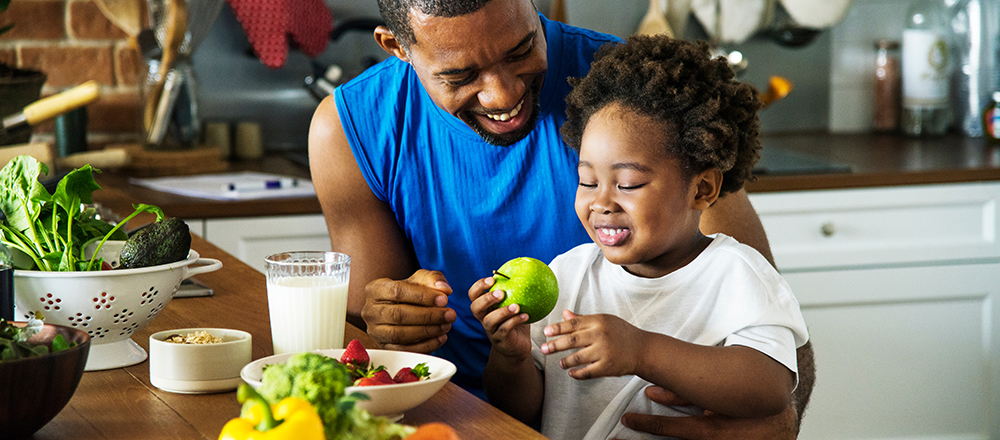Postpartum Depression: Causes, Symptoms and How to Get Help
January 7, 2020By: Mary Ann Lytle
Categories: Maternity, Pediatrics, Spiritual Wellness, Your Wellness

The birth of a baby is often celebrated with carloads of presents after showers with your best friends, a perfectly placed family heirloom in the nursery, and maternity photos that make you feel like a pregnant pageant queen.
But what happens when the perfect nursery feels like a prison? Or your post-baby body makes you feel like a monster? What if you don’t even want to get out of bed, even to feed your baby? Or, what if you feel you are the sole reason your baby must spend time in the NICU?
The Baby Blues
Nearly 80% of women who have a baby experience postpartum blues, commonly called the baby blues. Signs and symptoms of this temporary and mild form of depression include:
- Anxiety
- Crying for no reason
- Sadness
Typically, the baby blues start a few days after delivery and go away on their own within two weeks. If your symptoms don’t go away, or they get worse, you may have postpartum depression
Postpartum Depression
Postpartum depression is more serious than the baby blues and affects one in seven women. The symptoms are more persistent than those of the baby blues, and they interfere with your ability to function. Because of the severity of symptoms, postpartum depression often requires professional treatment.
It’s important to understand that postpartum depression doesn’t happen because of something you did or didn’t do. These factors may trigger postpartum depression:
- Being a single mother, which can create additional anxiety or stress
- Having a newborn in the NICU
- Hormone fluctuations
- Lack of support after delivery
- A pre-pregnancy mental health diagnosis
- Sleep deprivation
- The stress of returning to work not long after your baby arrives
A rare, but severe form of postpartum depression is postpartum psychosis. This condition can occur within 48 hours of birth or up to two weeks post birth. A woman who experiences postpartum psychosis is not aware that her emotions, behaviors and thoughts are psychotic thus she needs to be treated immediately.
Common Symptoms
A woman experiencing postpartum depression may have emotional, mental, physical or behavioral symptoms.
Emotional Symptoms
- Anxiety and fear*
- Easily frustrated
- Excessive and uncontrollable crying
- Extreme mood swings
- Feelings anger, rage, numbness, emptiness, guilt and/or shame
- Irritability and restlessness
- Persistent feelings of sadness and hopelessness
* Postpartum anxiety can be a standalone symptom or occur with postpartum depression. Anxiety or obsessiveness surrounding baby or medical needs are common.
Mental Health Symptoms
- Difficulty making decisions
- Doubts about being able to care for the baby
- Feelings of failure or inadequacy
- Unable to concentrate
- Thinks things are too overwhelming to handle
- Trouble remembering details
Physical symptoms
- Changes in appetite (eating too much or too little)
- Fatigue and loss of energy
- Headaches
- Muscle aches and pains
- Stomach pains
- Trouble sleeping or sleeping too much
Behavioral Changes
- Acts distant with her partner
- Afraid of being alone with the baby
- Angry behavior toward others
- Fearful of harming the baby to the point care she withholds care
- Unable to bond with the new baby
- Unable to enjoy time with friends and family
- Withdraws from friends and social activities
What to Do About Postpartum Depression
Postpartum depression is treatable. If you experience any of these signs, symptoms, thoughts or feelings, call your OB doctor or primary care provider.
If you have thoughts or feelings of wanting to hurt yourself, your baby or others, go to the nearest emergency room immediately.
If you think a loved one may be experiencing postpartum depression, the best thing you can do is listen, provide support and help in any way you can. Offer to watch the baby while the mom rests, meets up with friends or just has some time alone. Go grocery shopping for the family, or prepare a meal. Encourage her to talk with her doctors, and go to the appointment with her.
Resources
Bright Beginnings Postpartum Support Group
Open to all moms; lap babies welcome
Free
Second Saturday of every month
10-11:30 a.m.
NKCH Pioneer Room, 1st Floor Hospital
RSVP to Mary Ann Lytle, LMSW
816.691.8301
Mary.Lytle@nkch.org
The post Postpartum Depression: Causes, Symptoms and How to Get Help appeared first on True North.


